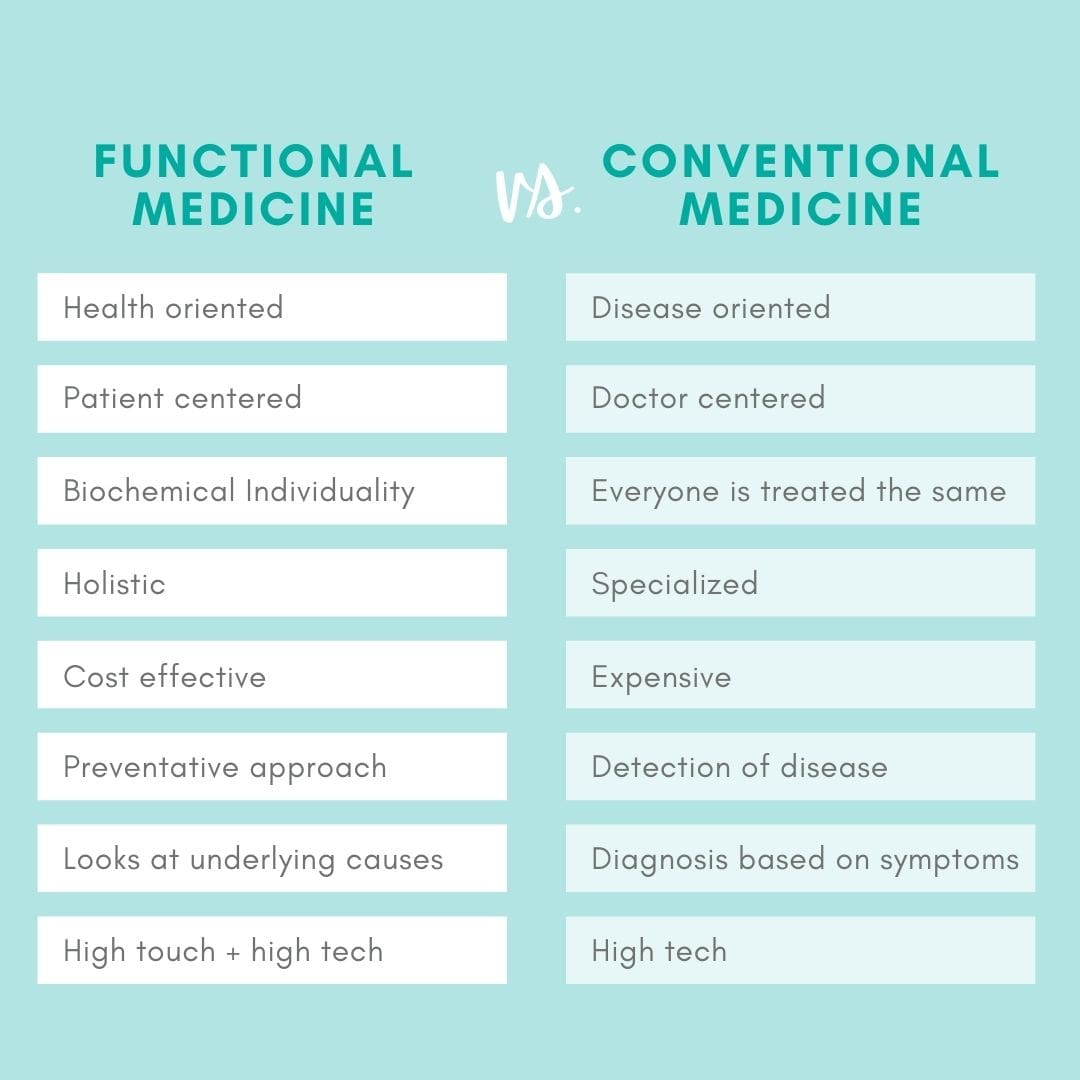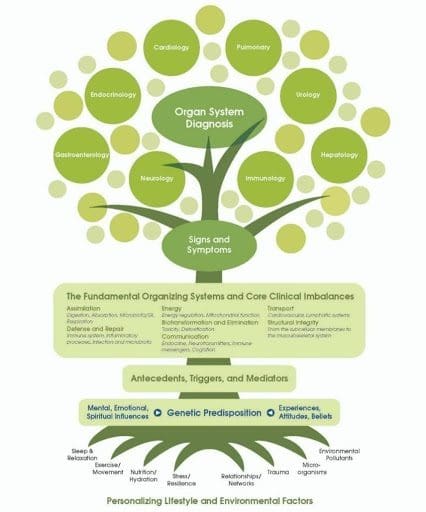Functional Medicine (FM) asks how and why illness occurs and restores health and balance in the body by addressing the root causes of disease on a very individual basis. By addressing the root cause, rather than symptoms, practitioners become oriented to identifying the complexity of the disease. Often, one condition has many different causes and, likewise, one cause may result in many different symptoms or conditions.
The Functional Medicine model is a patient-centered, science-based approach that creates a therapeutic partnership between patient and practitioner.
Together they address the underlying causes of disease to promote optimal wellness. By shifting from the traditional disease-centered focus to a more patient-centered approach, Functional Medicine addresses the whole person, not just an isolated set of symptoms.
Functional Medicine requires a detailed understanding of each patient’s genetic, biochemical, and lifestyle factors. Practitioners then utilize that data to create a personalized treatment plan. For example, two patients that present with the same general complaint – let’s say chronic back pain – will often require completely different treatment plans. Customized recommendations are based on such factors as medical history, existing lifestyle factors, current diet, triggers for pain, how it occurred, and more.
HOW FUNCTIONAL MEDICINE IS DIFFERENT FROM CONVENTIONAL MEDICAL CARE

Our Practice
With more than 22 years of experience, we blend the best of ancient Chinese Medicine and modern clinical functional medicine. While it might seem that they are worlds apart, we feel that Chinese Medicine is the Eastern counterpart to functional medicine. The former’s approach is also to uncover the root cause of distress and treat the entire person and system rather than just the symptoms or diagnosis.
Your First Visit
Your first visit consists of a lengthy intake and review of your medical history, dietary intake, and lifestyle factors. During this visit, we discuss individual antecedents, triggers, and mediators. Antecedents are factors that predispose to illness (think genetics); triggers are activators that provoke symptoms and signs of illness (as in an event triggers stress, which leads to IBS symptoms); and mediators are contributing factors (these could be environmental, dietary, etc.). Understanding the antecedents, triggers, and mediators that underlie illness or dysfunction in each patient permits therapy to be unique and customized to the needs of the individual.

Organ System Diagnosis
The tree illustration represents the core elements of FM. In order to keep a tree healthy and allow it to flourish, you need to support the most basic and essential elements first (roots and soil). The very foundation of good health roots in quality sleep, movement, nutrition, stress, relationships, environmental pollutants, trauma, and microorganisms. Similarly, when health is off, the first place we look for answers is in those same elements.
“When the roots and soil are not nourished, the leaves above cannot flourish.” Dr. Michelle Iona, DACM, L.Ac.





